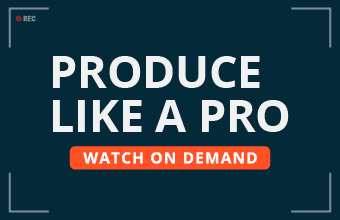Businesses are constantly looking for ways to reduce their overhead cost and at the same time increase their revenue. One way of doing this has been cutting down on traditional advertising and using a tiny fraction of the marketing budget to advertise on social media. Another viable option has been to reduce the human workforce and replace it with AI.
Now, what happens when these two modern phenomena—AI and social media—combine? This article sheds light on the AI/social media interaction, and how AI has impacted—and will continue to impact—social media marketing.
AI assists social media platforms in improving their user experience
Just like in the mainstream corporate world, the various social media giants are in constant competition with one another. The number of social users is nearing 2.8 billion and every social platform wants the lion’s share of that population. As more users join the platform, the more headache there is in processing the voluminous unstructured data that they bring along. The efficacy of humans is seriously put to the test by big data and, in more cases than not, they are overwhelmed by it. How, then, can Facebook, Twitter, Instagram, etc. accommodate more users without being overrun by big data? AI, of course.
Facebook has been using AI to analyze user activity and demographics as a way of improving its user experience. AI sorts the sense from the nonsense and makes something out of the unstructured data that users throw at it every single second. Facebook’s AI algorithms, for example, track user comments on different topics and uses them to determine which content to rank on top of a given user’s news feed. This new technology has also been helping Facebook users to tag one another more effectively through face recognition, and to find friends easily through user location and other provided data. Twitter, on the other hand, uses AI to monitor the trending topics and to determine which tag to rank where. The platform is also on the verge of abolishing chronological ranking of tweets in favor of relevance-based ranking, which will give tweeters the information they really need and improve the platform’s navigability.
Google also is starting to use AMP stories on their search engine. Using artificial intelligence algorithms, they will curate stories to construct AMP stories and show them in SERP—a rich and visual format that would be more welcomed by readers. These AMP stories will still require human moderators to review them to ensure there aren’t mistakes or issues.
Businesses need AI to monitor and understand their online customers and prospects
Every marketer out there wants to leverage the influence of social media. That’s where AI steps in. It can effectively study a user’s searching habits on a given social platform and advise marketers on which demographic to target with their ads. It understands the products that a user could be interested in through his likes and comments and then recommends ads to display on his/her timeline.
The technology goes even further to study the specific preferences that a user could have within a given range of products. If a fashionista looks up ladies clothing a lot and then narrows down to cowgirl boots, for example, AI deciphers that and only displays cowgirl boots for that user. The spiral effect of this is increased traffic to more relevant product and brand pages, which then makes social media marketing even more effective.
Going forward, AI could be used to discern legitimate marketing influencers from those who buy comments and followers. It will help business managers to track the performance of their social influencers and their conversion rates—and help them strategize to ensure that every penny on their marketing budget is put to good use.
AI as a competition-minded tool
In business, knowing what a competitor is up to is as important as making your own business plans. AI has been helping online marketers to track competitors’ business online, know what they have done on their social media profiles, and then use that information to reevaluate their social media business plan. The idea here is to discover what’s working for the competitor and add it to your profile, and then eliminate or upgrade what isn’t working for them so that it can work for you. This technology tells you how much of visual or static content that your prospective clientele is ready to consume, and which platform has most of your target customers. That way, you are able to compete more effectively online.
The impact of artificial intelligence on social media cannot be over-emphasized. If you need help in leveraging this new technology, it would be wise for you to outsource this task to experts. According to Outsource2EU, Europe is one of the continents that has the most talented social media managers. Such a manager will help you track the social media pages belonging to competitors and to optimize your own pages.







